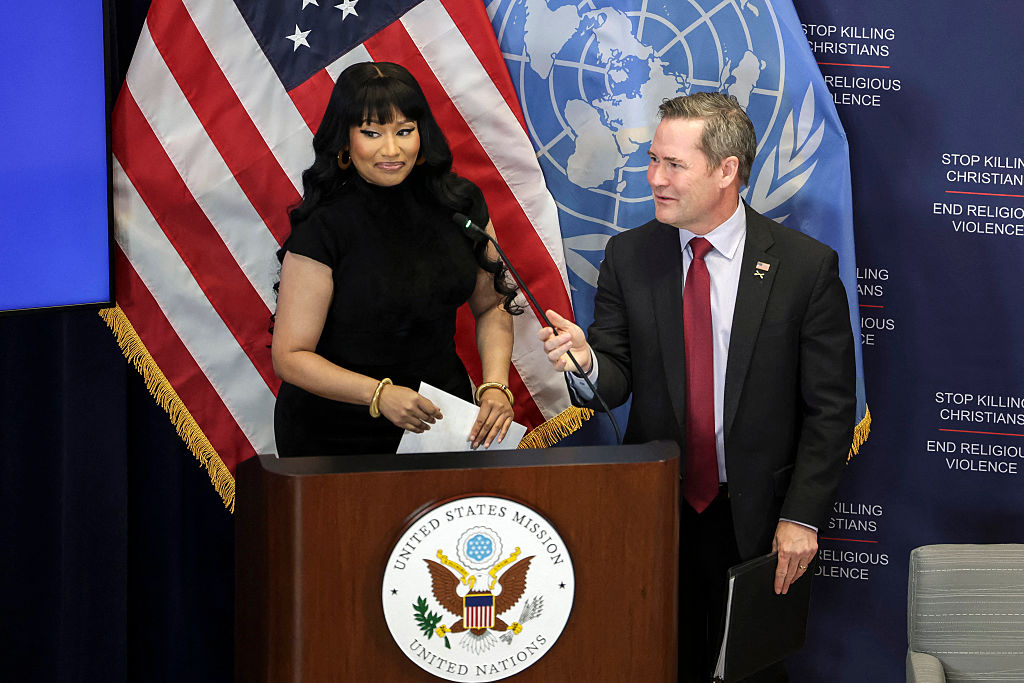Jesus, it could be reasonably observed, recruited a motley cast to serve as the first heralds of the gospel.
An endlessly squabbling band of fishermen, with a few tax collectors and zealots thrown in, the biblical narratives have them endlessly jockeying among themselves for prominence and status before they, to a man, flee when the going gets tough and their Messiah gets arrested.
In the two thousand years since, the Catholic Church has done its best to balance the inevitable imperfections of its messengers with the perfect truths they are supposed to announce. It’s not always an easy task – and as with so many other things, the internet has made it much more complicated. Especially because there are as many or more self-appointed evangelists as those actually commissioned by the Church to do so, and often with far less formation.
Recently, one of the new crop of self-made and self-credentialed online evangelists appeared to flame out in grisly spectacular fashion.
Alex Jurado, a young man with a burgeoning following for his “Voice of Reason” platform, found himself accused via several social media accounts of exchanging sexually explicit messages with a number of women and, allegedly, a 14 year-old girl – which he has vigorously denied, while acknowledging unspecified “mistakes, failures, and sins.”
Screen shots of the supposed exchanges to one side, the details are a little murky. It’s not exactly clear when all of these exchanges were meant to have happened (if they did). In fact, it’s not immediately clear how old Jurado is himself – different reports suggest he is somewhere between 28 and 30 years old.
For those unfamiliar with him – as I was myself – it is equally unclear what his credentials are as a professional public explainer and defender of Catholic teaching, though he claims to have spent some brief period in a seminary, at some point, somewhere.
Other Catholic media sites have been quick to scrub guest appearances by Jurado in response to the accusations, and to distance themselves from the young man. It remains to be seen if and how his situation will resolve itself, but thus far the narrative arc is – like so many things in the online world – unique in the particulars but familiar in its outline.
In the great before time, before social media and YouTube, before podcasts and livestreams, Catholic evangelists and apologists existed in the same kinds of gate-kept ecospheres as many other areas professional expertise: to get in front of a large audience, generally speaking some institution had to credential you and put you there.
For Catholics, highly developed systems of doctrine, dogma and canon law favoured the ordained clergy, where most of the institutional knowledge, training and endorsement tends to be focused. And Catholics, unlike their Protestant brethren, retained an innate suspicion of anyone who showed up on the scene without an official hierarchical endorsement.
As American TV airwaves filled with self-made televangelists in the late 20th century, flashing their Rolexes and private jets and preaching a highly lucrative vision of salvation-as-pyramid-scheme, Catholics tended to shake their heads in amusement – all the more so when these self-ordained profits of prosperity would end up flaming out in scandals of one sort or another.
All that, though, has changed in an era of instant online celebrity and riches, where “influencing” is a big business with almost no barrier to entry. And in an age of institutional disaffiliation and suspicion, self-proclaimed experts of every variety have shot to celebrity status, opining online about everything from politics to medical science to the practice of journalism.
Among Catholics, a new micro industry of social media celebrity evangelist-apologist-commentators has flourished, fueled by skepticism of the Church hierarchy in the wake of clerical abuse scandals on one side, and the ever advancing tide of progressive sexual, social and political mores on the other.
Opportunities for money and sex and never far behind. A trailblazer of the online outsider Catholic persona was Michael Voris, founder of the combative Church Militant website, who pitted himself as a prophetic voice of truth and integrity against a supposedly compromised Church hierarchy and wicked secular world, before the whole project collapsed under the weight of debts, lawsuits and accusations of sexual misconduct.
One of the more established and credible websites to distance themselves from Jurado last week, Catholic Answers, has already had to watch Patrick Coffin, previously one of its more well-known in-house personalities, depart and slide into an obsession with anti-popes and chemtrails.
For the Church hierarchy, the phenomenon of celebrity social media Catholicism is a vexing problem. Indeed, the Church might reasonably conclude it has enough problems online with its official ministers.
The former Bishop of Tyler, Texas, Joseph Strickland was fired by the Vatican in 2023 in no small part because of his social media posts, which increasingly catered to the bishop’s committed personal following while taking aim at the pope personally.
The Vatican’s former ambassador to Washington, D.C., Archbishop Carlo Maria Vigano, a quiet career Church civil servant who retired in 2016, went viral at the height of the sex abuse scandals of 2018 when he publicly accused Pope Francis of covering up for the later defrocked Cardinal Theodore McCarrick and demanding that the pope step down.
From there, the archbishop became a fixture in the MAGA firmament, addressing “Stop the Steal” rallies after the 2020 election and hailing Donald Trump as a divinely-sent defender of Christian civilization, before deciding the Donald was soft on LGBT issues and switching his endorsement to Vladimir Putin and finally being excommunicated by the Vatican last year.
Minnesota’s Bishop Robert Barron, whose Word on Fire media company racks up considerable digital engagement across platforms, pitches himself as a patient pastor and friendly teacher, wide open to dialogue with all comers. Yet he’s also routinely savaged as being “Trumpy” for holding the Church’s teaching on, for example, trans issues, or for failing to make immigration a front line priority.
Social media, perhaps sadly, isn’t going anywhere. While it has become an unignorable reality, almost no one holds it out as a good thing getting better – in fact, the received wisdom is the opposite.
But, as long as there are souls to be saved and money to be made, Catholics of all ranks and kinds will be there, bringing a fair share of scandal along with the gospel.
The perils of Catholic social media evangelism
One of the new crop of self-made and self-credentialed online evangelists has flamed out in spectacular fashion

Catholic rosary beads on a laptop keyboard (Getty)
Jesus, it could be reasonably observed, recruited a motley cast to serve as the first heralds of the gospel. An endlessly squabbling band of fishermen, with a few tax collectors and zealots thrown in, the biblical narratives have them endlessly jockeying among themselves for prominence and status before they, to a man, flee when the going gets tough and their Messiah gets arrested. In the two thousand years since, the Catholic Church has done its best to balance the inevitable imperfections of its messengers with the perfect truths they are supposed to announce. It’s not…

























Leave a Reply